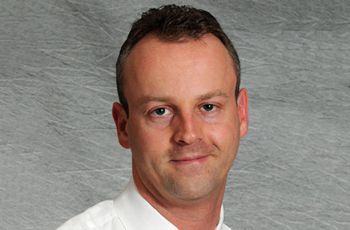News Archive
At The George Washington University School of Medicine and Health Sciences (SMHS), excellence in teaching is not an exception — it’s the rule.
WASHINGTON – The George Washington University Medical Center received $400,000 in the form of two grants from the Avon Foundation to support patient navigation services and research to develop a new test to assess risk of breast cancer.
New research from Michael Irwig, M.D., assistant professor of Medicine in the School of Medicine and Health Sciences, shows some men can have persistent sexual side effects lasting five years after they stop taking the drug finasteride, commonly marketed as Propecia.
What do the New York Subway system, the Peace Corps, and GW’s Interdisciplinary Student Community-Oriented Prevention Enhancement Service (ISCOPES) have in common?
Just a few decades ago, the connection between neurobiology and cancer biology was suspected, but unspoken.
In an op-ed, Katherine Chretien, M.D., associate professor of Medicine in the School of Medicine and Health Sciences, discusses her concerns about kids playing tackle football, based on mounting medical evidence of repetitive head trauma causing chronic brain injury.
WASHINGTON (April 27, 2011) — By dividing individuals with autism spectrum disorders (ASD) into four subtypes according to similarity of symptoms and reanalyzing existing genome-wide genetic data on these individuals vs. controls, researchers at the George Washington University School of…
WASHINGTON – The National Institutes of Health (NIH) announced yesterday that Peter Hotez, M.D., Ph.D., a scientist and researcher at the George Washington University School of Medicine and Health Sciences, has been appointed to serve as a member of the NIH Council of Councils.
The thought first struck what Vinayak Jha, M.D., assistant professor of Medicine, calls his “ridiculous nerve.”
Since its founding in 2006, the GW HEALing (Healthcare, Education and Active Living) Clinic has helped expand healthcare access to vulnerable populations in Washington D.C.

